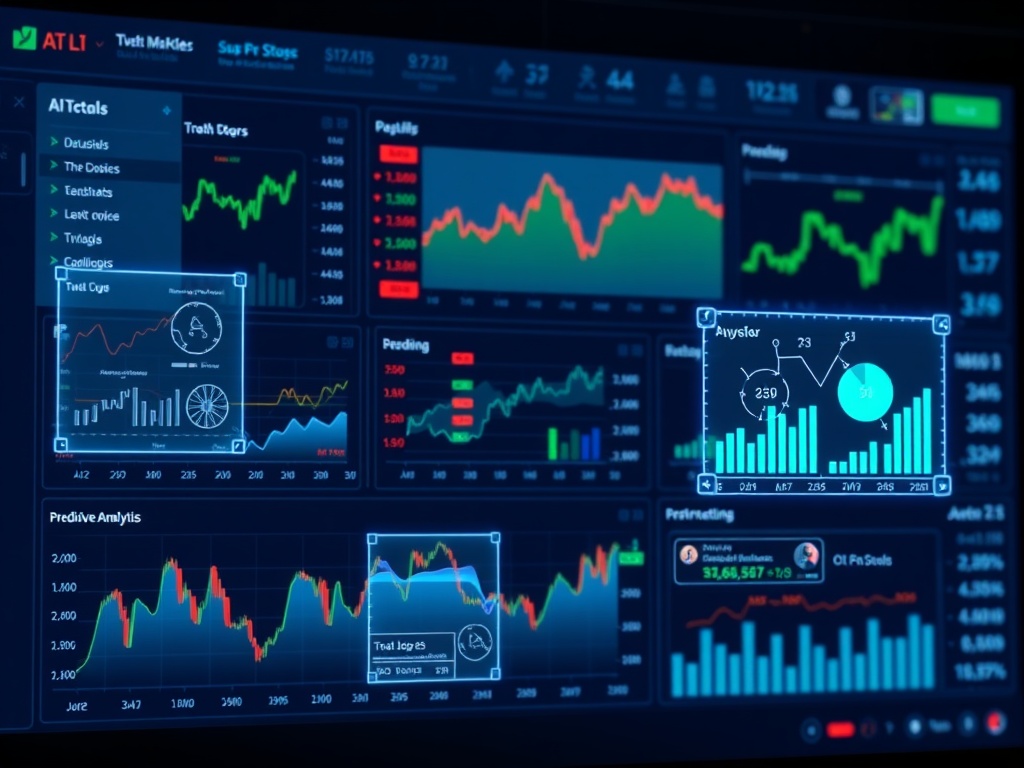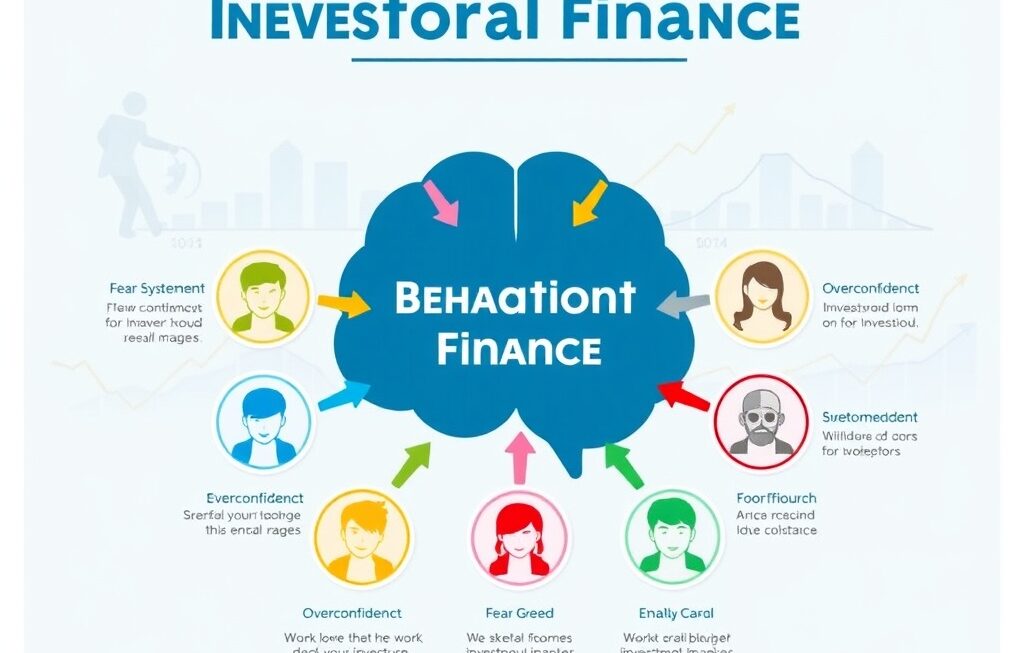Investing in artificial intelligence companies has become one of the most powerful financial strategies in the modern economy. Artificial intelligence (AI) is not just a technological innovation—it represents a global shift in how businesses create value, optimize performance, and engage with customers. From personalized healthcare to self-driving cars, AI is transforming industries at an unprecedented pace, and investors are seeking ways to capture this momentum.
AI is already influencing major economic decisions and redefining productivity across all sectors. For investors, this means an enormous opportunity—but also the need for strategic insight. Understanding where AI is headed and which companies are driving the transformation is key to long-term financial success.
Understanding the Growth of the AI Industry
The AI industry has grown from an experimental field into a trillion-dollar ecosystem. According to market forecasts, the global AI market is expected to surpass $1.8 trillion by 2030, fueled by rapid advances in machine learning, data analytics, cloud computing, and robotics.
This growth is supported by the increasing availability of data and computational power. Companies are leveraging AI to automate decision-making, improve customer experiences, and reduce costs. As a result, both established corporations and emerging startups are investing heavily in AI research and development.
Key Drivers of AI Growth
Several factors are driving the explosive expansion of the AI sector:
- Data Availability: The world generates massive amounts of data daily, which fuels AI algorithms and machine learning models.
- Cloud Infrastructure: Cloud platforms have made AI accessible and scalable, enabling small and large companies to integrate advanced analytics.
- Computational Advances: The rise of GPUs and neural processors—led by companies like Nvidia—has accelerated AI’s development dramatically.
- Corporate Investment: Major players such as Alphabet, Microsoft, Amazon, and Meta continue to invest billions in AI projects.
These forces collectively make investing in artificial intelligence companies one of the most dynamic and promising financial frontiers.
Why Investors Are Turning to Artificial Intelligence
Artificial intelligence is not a passing trend—it is a permanent pillar of economic innovation. Investors are drawn to AI for two main reasons: exponential growth potential and cross-industry applications.
AI enhances productivity, automates repetitive tasks, and generates insights that humans alone could not achieve. For investors, this translates into tangible returns through higher efficiency and lower operational costs across industries.
Direct vs. Indirect Investment Opportunities
There are two main approaches to investing in artificial intelligence companies:
- Direct investment: Buying stocks or shares in companies that develop AI technologies, such as Nvidia, OpenAI partners, or Google DeepMind.
- Indirect investment: Investing in companies that apply AI in their operations—like Tesla (autonomous driving), Netflix (content recommendation), or JP Morgan (AI risk analysis).
Both strategies can deliver strong results, but diversification is crucial to manage volatility in such a fast-changing market.
Major Sectors Leading the AI Revolution
AI is deeply embedded in almost every sector of the economy. However, some industries are experiencing particularly rapid transformation and represent the most attractive opportunities for investors.
Technology and Cloud Computing
Tech giants are at the center of the AI boom. Microsoft, Amazon, and Google provide AI-driven cloud services that power countless applications worldwide. Their AI tools—such as Azure AI, AWS Machine Learning, and Google Cloud AI—offer businesses scalable solutions for automation and analytics.
Investing in these corporations allows exposure not only to AI itself but also to the digital infrastructure supporting global innovation.
Healthcare
The healthcare industry is undergoing an AI revolution through predictive analytics, medical imaging, and personalized medicine. Startups and large firms alike are using AI to detect diseases earlier, optimize drug development, and enhance patient outcomes.
Investors in this field benefit from the combination of financial growth potential and social impact—a rare and compelling mix.
Automotive and Robotics
Autonomous vehicles, robotics, and smart manufacturing rely heavily on artificial intelligence. Companies like Tesla, Nvidia, and ABB use AI to increase safety, precision, and productivity.
Investing in this sector offers exposure to both hardware and software innovations, balancing short-term performance with long-term technological disruption.
Finance and Banking
The financial industry is perhaps one of the earliest adopters of AI. Banks and investment firms now use machine learning algorithms for fraud detection, credit scoring, and automated trading.
AI has also enabled the rise of robo-advisors, which provide personalized investment strategies at lower costs. Investors seeking steady growth can look for companies developing fintech platforms and predictive analytics tools.
Evaluating Artificial Intelligence Companies
When investing in artificial intelligence companies, proper evaluation is essential. Unlike traditional firms, AI companies depend heavily on intellectual property, data assets, and technological scalability.
Key Metrics to Analyze
- Research and Development (R&D) Investment: Companies that allocate significant budgets to R&D often lead innovation and maintain competitive advantages.
- Data Quality and Access: AI systems depend on vast datasets—companies with exclusive or high-quality data hold significant long-term value.
- Talent and Leadership: Experienced AI engineers and visionary leadership teams drive sustainable growth.
- Strategic Partnerships: Collaborations with tech giants or universities can accelerate innovation and reduce operational risk.
By evaluating these factors, investors can better identify which AI firms are positioned for success in the coming decade.
Risks and Challenges of Investing in AI
While the potential rewards are high, investing in artificial intelligence companies also involves specific risks. AI is a rapidly evolving technology, and the competitive landscape can shift quickly.
Market Volatility
Many AI stocks experience volatility because market valuations often reflect future potential rather than current profits. Investors should maintain a long-term perspective and diversify across multiple sectors.
Ethical and Regulatory Issues
Governments worldwide are developing frameworks to regulate AI, particularly concerning data privacy and ethical decision-making. New policies could influence the operations and profitability of AI firms.
Technological Disruption
AI companies face constant pressure to innovate. A single breakthrough by a competitor can make existing models obsolete, making due diligence crucial before investing.
How to Start Investing in AI
Getting started with AI investments requires research and a clear strategy.
1. Identify Your Investment Goals
Determine whether you want long-term growth, dividend income, or speculative returns. AI companies vary widely in maturity and profitability.
2. Choose the Right Investment Vehicles
Investors can gain exposure through:
- Individual Stocks: For example, buying shares in Nvidia or Alphabet.
- Exchange-Traded Funds (ETFs): AI-focused ETFs like Global X Robotics & Artificial Intelligence ETF (BOTZ) offer diversified exposure.
- Venture Capital or Crowdfunding: For high-risk, high-reward opportunities in early-stage startups.
3. Diversify Across AI Segments
Balancing investments between established firms and startups reduces risk while maintaining growth potential. Combining exposure to software, hardware, and applied AI markets provides a stable foundation for long-term gains.
The Future of AI and Investment Potential
Artificial intelligence is expected to be a cornerstone of economic growth for decades to come. As automation and intelligent systems become more integrated into society, demand for AI solutions will continue to rise.
Emerging trends like generative AI, AI-driven sustainability, and quantum computing will further expand investment opportunities. Companies at the intersection of AI and other technologies—such as biotechnology or green energy—are likely to experience exponential growth.
For investors, keeping up with these developments is essential. Continuous education and adaptation will help identify future leaders before they dominate the market.

In Summary:
Investing in artificial intelligence companies represents one of the most transformative opportunities in modern finance. As AI becomes the backbone of innovation across industries, it offers investors access to unprecedented growth potential. However, success in this sector depends on informed decision-making, diversification, and a long-term perspective.
Artificial intelligence is not just changing technology—it is changing the global economy itself. For investors willing to embrace its complexity, the rewards can be extraordinary.




